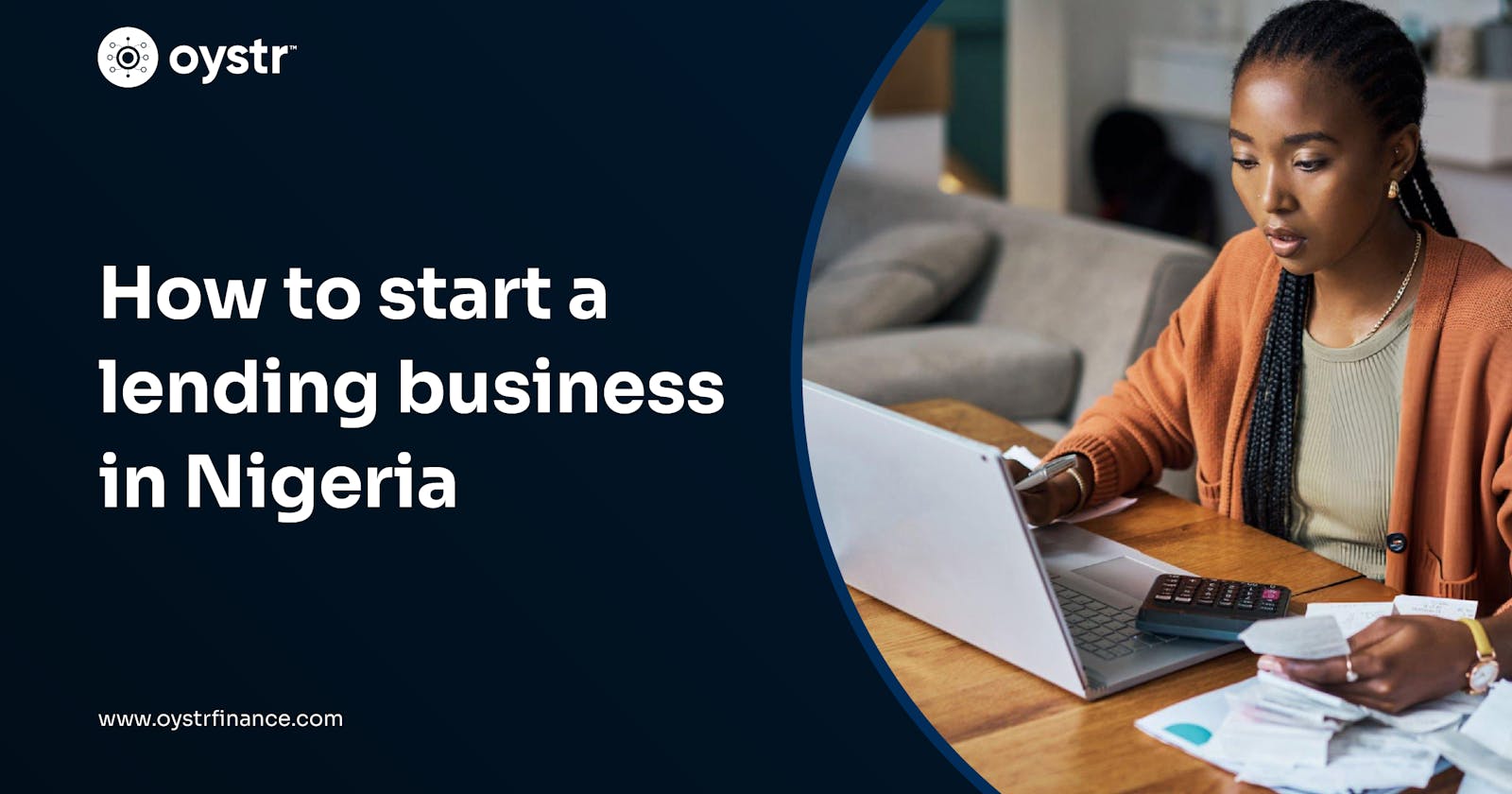If you're looking to diversify your income streams, getting into small-scale lending might not have been your initial plan. Perhaps you stumbled upon this page out of curiosity, or maybe you're genuinely considering this as a side gig.
Whatever the case, you're here now, grab your fried plantain and let's delve into what it takes to become a lender.
Why Become a Lender?
It is the same reason why you endure Third Mainland Bridge traffic every day and why Adebayo Ogunlesi wakes up every morning: to make money. It has the potential to yield more interest on your savings than traditional bank accounts or other investment products like fixed deposits.
What's Needed to Start Lending?
Here's what you'll need:
Capital (obviously, who starts anything in Nigeria without money?).
A Money Lender’s License (if you plan to do this full-time).
A platform to conduct your lending business.
Strong reporting and record-keeping abilities.
Getting a Lender’s License
Getting a license from the government - ugh, just mentioning it raises your heartbeat, right? Before we both hyperventilate, let's untangle the mysteries of the Moneylenders Act and see if your side-hustle lending gig needs that official stamp.
Back in the day (before 1990), both the federal and state governments had a say in money lending through their respective acts. But then in 1990, the federal act got the boot, leaving each state's Moneylenders Law to hold the reins. These laws are pretty similar across the board, and guess what? The biggie is the Moneylenders License.
Now, you're probably rolling your eyes, thinking, "Here we go." But hold on! Not everyone needs one. The Lagos state law, for example, says if lending ISN'T YOUR main business (just a little something on the side), you're not considered a money lender and therefore don't need that license. So, breathe easy, side-hustlers!
The Moneylenders Law of Lagos state (as an example) states that “a person who lends money at interest or who lends a sum of money in consideration of a larger sum of money being repaid shall be presumed to be a money lender until the contrary is proved” (Moneylenders Law, 1990, sec.4). It goes on to stipulate that any such lender MUST be licensed in order to operate as a money lender legally. What does that mean for you, the small-time side-hustling money lender?
Let’s take a closer look at the Law. One of the stated exemptions to the definition of a lender includes “any person whose main business IS NOT lending and who lends money solely incidental to the conduct of such business” (Moneylenders Law, 1990, sec.4). What that is saying in plain English is that if money lending is NOT your sole business/occupation/source of income, then you cannot be classified as a money lender and hence, do not require a license to legally run your side-hustle. Okay, everyone can heave a sigh of relief now, and all the skeptics can retire to fight another day.
Just because you don't need a license doesn't mean you're off the hook. The Moneylenders Law still applies, so no charging crazy interest or resorting to knee-capping tactics - seriously. It's in your best interest to know the rules of the game in your state. Here's a helpful starting point to avoid any unwanted drama.
.
Platform, Record-keeping, and Reporting
Once licensing is sorted, you'll need the right tools to run your business effectively:
A loan management app to organize your operations, handle loan applications, and manage approvals.
Robust financial tracking to monitor loans and payments.
Good bookkeeping practices to track profits and business performance.
Don't fret about the details; numerous software and apps can assist without requiring you to become an accounting expert.
Oystr Finance is a lending SaaS (software as a service) designed for lenders . It is a simple loan management platform for individuals, microfinance banks and small cooperatives to easily manage loans without spending a fortune building their own digital platform or learning to use complex spreadsheets. Oystr has all the tools you need to be a successful lender.

